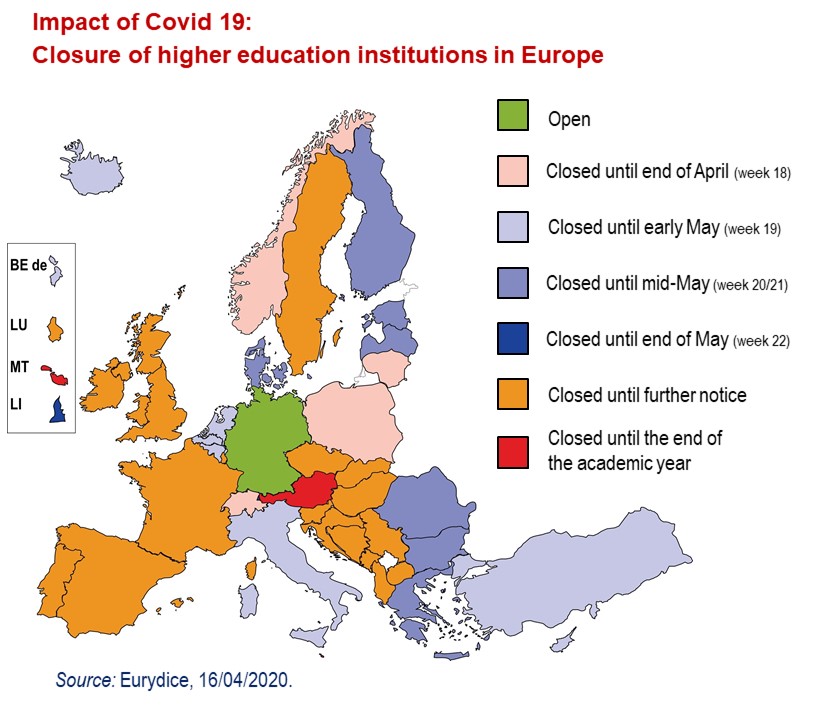Eurydice reports on closure and reopening of schools and education institutions across Europe
20 April 2020
The COVID 19 outbreak is a public health crisis quite different than anything Europe has faced for many years. As education personnel and their trade unions grapple with the outbreak, we are supporting and informing member organisations in any way we can.
- Long COVID-19: What challenges for education trade unions across Europe?
- ETUCE study on Education Trade Unions in Europe facing COVID-19 Omicron Variant
- Well-being of academics and researchers in the Netherlands: who did COVID-19 affect the most?
- Belgium: Education is essential! Truly?
- Education and Training Monitor 2021 sheds light on well-being during COVID-19
- Gender segregation in education: setback to achieving gender equality in EU
- Latvia: the impact of the pandemic on teachers is extremely worrying
- Education trade unions building capacity for renewal beyond COVID-19
- French study: the psychosocial impact of COVID-19 on researchers
- Romania: Success in the negotiations for a vaccination agreement
- UK Study found stress and anxiety of academics above national average during COVID-19 pandemic
- New OECD data outlines the effect of the COVID-19 pandemic on the teaching profession
- Transmission of COVID-19 in education: the scenario for the next school year
- New NEU information tool to encourage critical-thinking on COVID-19 vaccines
- Hungarian teachers’ opinion on the reopening of schools

The Eurydice research network published an article on 20 April 2020 presenting data on the closure schools and other education institutions at various levels of education. The findings show that that higher education institutions in much of Europe are closed until further notice. The closure of schools in many countries is until early or mid-May, or until further notice, with some countries prioritising reopening for students in exam years. Early childhood education and care is the only level of education in Europe where many countries have allowed institutions to stay open or reopen already.
Some country specific cases within the article include:
- Germany and Switzerland: Variation in school closures across the country.
- Luxembourg: upper secondary schools (ISCED 3) will open on 4 May for students in their final year.
- Austria: upper secondary schools will open on 4 May 2020 for students in the last school year who need to take the national exam (Matura).
- Czechia: Tertiary education institutions may operate from 20 April 2020 only for individual consultations and examinations.
- Norway: Higher education institutions are opening from 27 April 2020 for students that are in the end of their degree studies, and who are dependent upon using equipment at the university.
ETUCE recalls that authorities developing exit strategies for educational institutions must consult with trade unions and prioritise the health and safety of students, education personnel and the wider community. ETUCE’s statement on COVID-19 highlights that the physical and mental wellbeing and health of workers cannot be neglected, and that health and safety measures implemented in the workplace must be designed following the recommendations of health and safety authorities and experts. Furthermore, in no way should education personnel at any levels of education, from early childhood to primary, secondary, higher education and research, vocational education and training and adult learning suffer economic or professional detriment for the disruptions caused by the COVID-19 emergency.